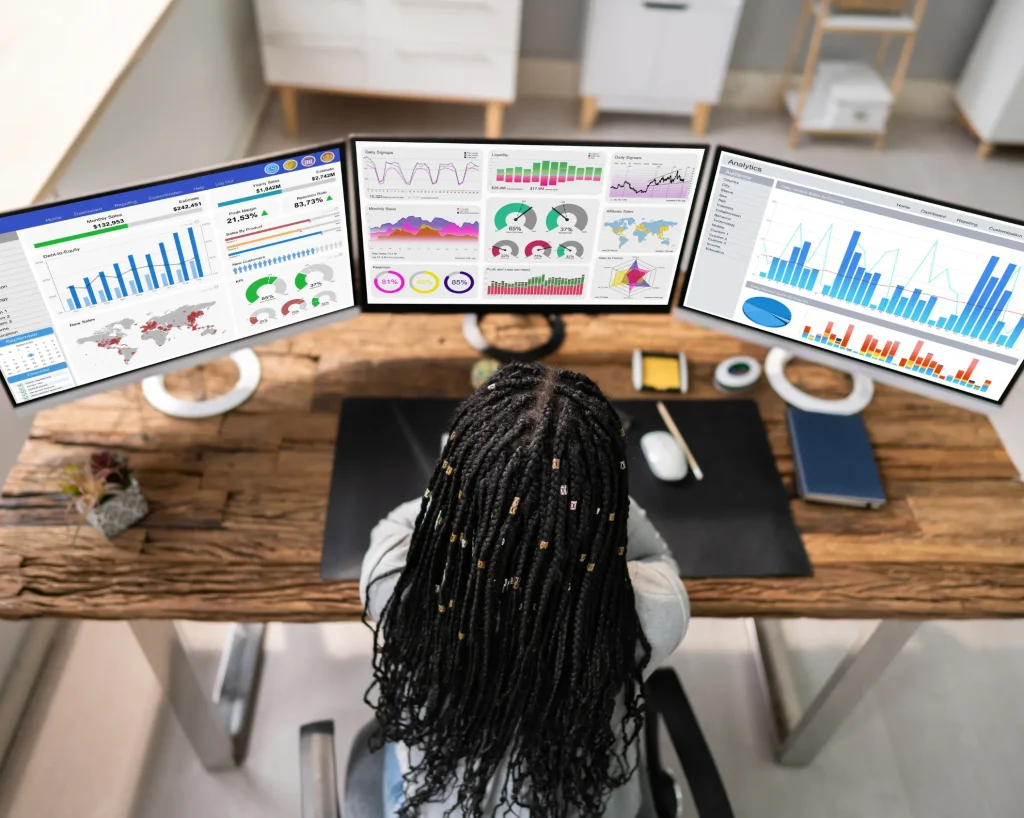The Role of AI in Modern Marketing: Tools and Techniques

Artificial intelligence (AI) is rapidly transforming the marketing landscape, enabling businesses to deliver personalized experiences, optimize campaigns, and make data-driven decisions faster than ever before. In 2024, AI’s role in marketing is more critical than ever, with innovative tools helping marketers automate processes, analyze data in real-time, and stay ahead of competitors. From enhancing customer engagement to improving campaign performance, AI is reshaping how businesses approach marketing.
AI-Powered Data Analysis for Smarter Decisions
One of AI’s most significant contributions to marketing is its ability to analyze massive amounts of data quickly and accurately. Traditionally, marketers had to manually sift through data to identify trends and insights, a time-consuming process prone to human error. Today, AI tools like Webalyze can instantly process data from multiple sources, such as Google Analytics and Google Ads, to deliver actionable insights.
With Webalyze, marketers don’t just see data points—they receive specific recommendations on how to optimize campaigns. For example, Webalyze can identify which marketing channels are driving the most traffic and conversions, suggesting budget reallocation to maximize ROI. By leveraging AI’s data-crunching capabilities, businesses can make smarter, faster decisions that lead to better results.
Personalization at Scale
Personalized marketing is no longer a luxury; it’s a necessity. Consumers expect brands to understand their needs and preferences, and AI makes it easier to deliver highly targeted, personalized content at scale. AI tools can analyze user behavior, segment audiences, and create personalized recommendations for each customer.
For instance, AI-driven email marketing platforms can tailor messages based on a customer’s past purchases, browsing history, or engagement patterns. This level of personalization significantly improves customer engagement and loyalty. Moreover, AI can help automate this process, ensuring that personalized content reaches the right audience at the right time.
Automation for Efficiency
Automation is another area where AI is making a massive impact in modern marketing. AI-powered tools streamline repetitive tasks, such as sending follow-up emails, scheduling social media posts, or optimizing ad bids. This frees up valuable time for marketers to focus on strategy and creative work. Platforms like Webalyze take automation a step further by continuously monitoring campaign performance and offering real-time adjustments.
For example, if a campaign isn’t performing as expected, Webalyze will alert marketers and provide recommendations on how to improve results—whether it’s tweaking ad copy, adjusting bids, or refining the target audience. This level of automation ensures that marketing efforts are always optimized, without needing constant manual intervention.
Predictive Analytics for Proactive Marketing
AI also excels at predictive analytics, allowing businesses to forecast trends and customer behavior. By analyzing historical data, AI tools can predict future patterns, helping marketers be more proactive in their approach. Whether it’s anticipating seasonal demand shifts or predicting which products will be popular with certain demographics, predictive analytics give businesses a competitive edge.
For instance, AI can analyze customer interactions and predict which users are likely to make a purchase, enabling marketers to create targeted campaigns aimed at converting those users. This type of foresight allows businesses to allocate resources more effectively, driving higher conversion rates and increased revenue.
AI and Customer Experience
Customer experience (CX) is a critical component of modern marketing, and AI plays a major role in enhancing it. AI-powered chatbots and virtual assistants can provide immediate support to customers, answering questions, assisting with purchases, and even resolving issues in real-time. This not only improves the customer experience but also boosts satisfaction and retention.
Additionally, AI tools can track customer sentiment through social media interactions, online reviews, and customer feedback. By analyzing this data, businesses can quickly respond to negative trends and improve their overall CX strategy. Tools like Webalyze can monitor these customer interactions and provide insights into how businesses can improve their approach, ensuring customers remain happy and engaged.
As AI continues to evolve, its role in marketing will only become more prominent. From automating tasks and personalizing customer experiences to providing actionable insights, AI offers unparalleled opportunities for businesses to stay competitive and efficient. Tools like Webalyze are leading the charge, helping businesses harness the power of AI to optimize their strategies and make smarter marketing decisions. In 2024, leveraging AI is essential for businesses looking to enhance performance, engage customers, and stay ahead in an increasingly data-driven world.